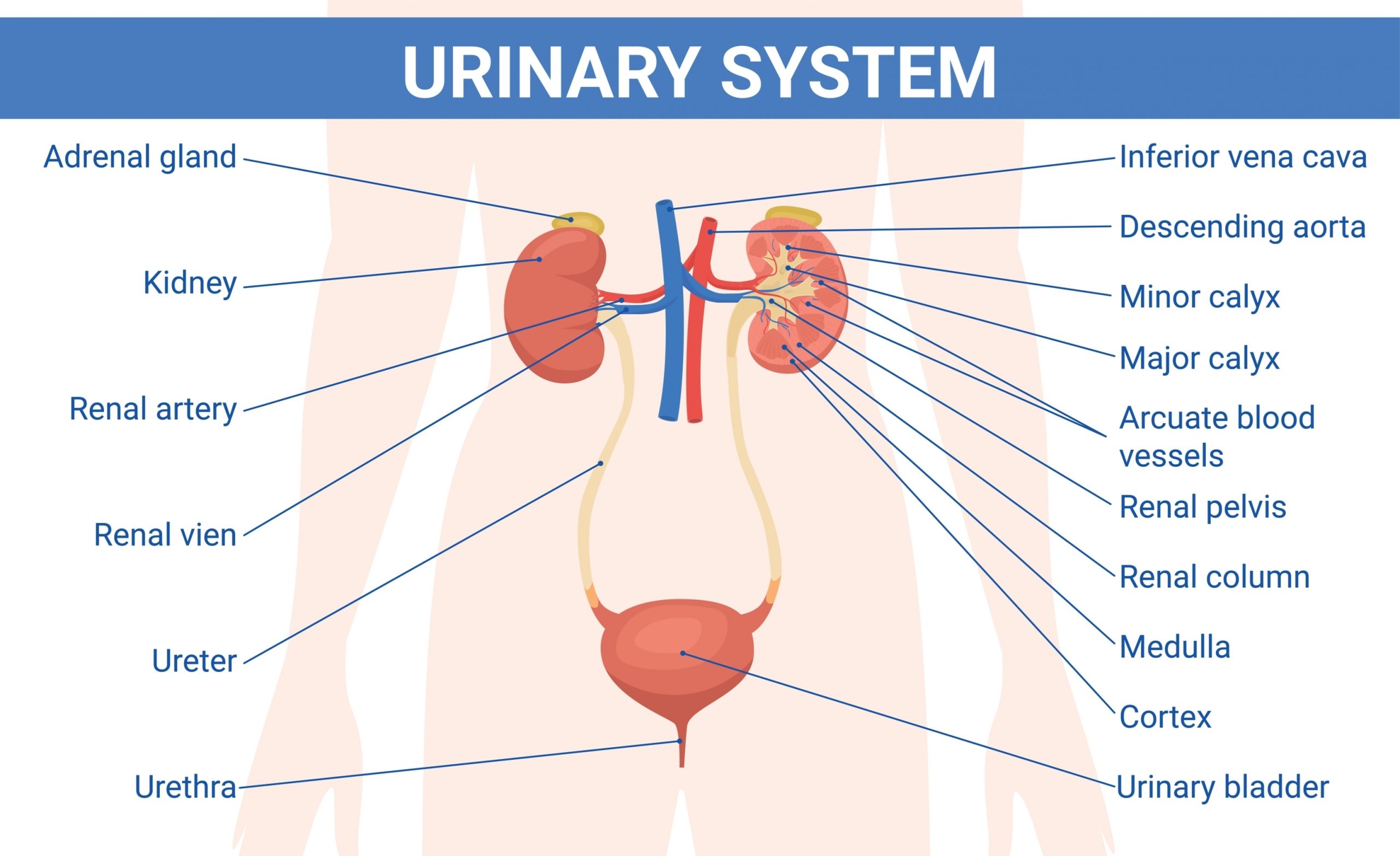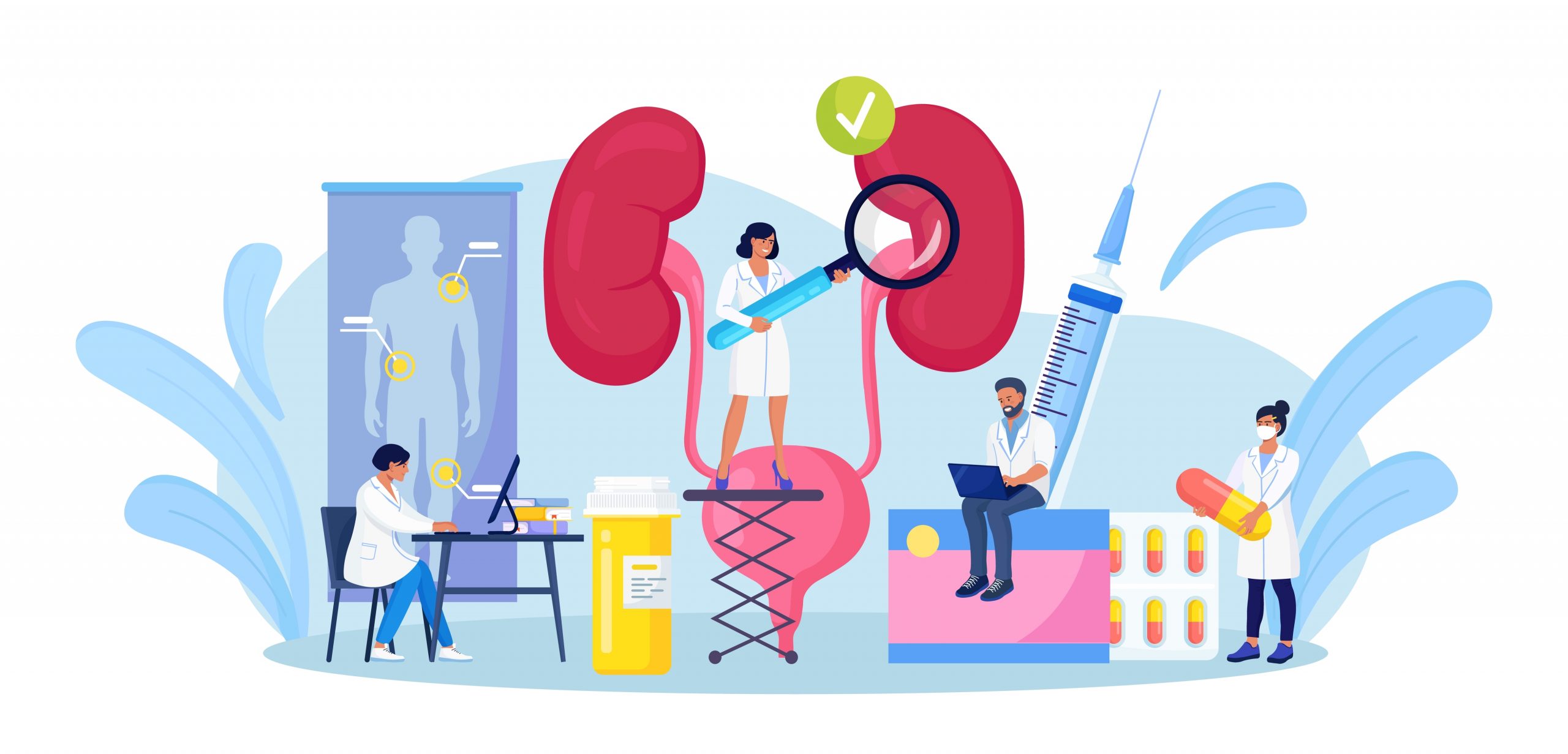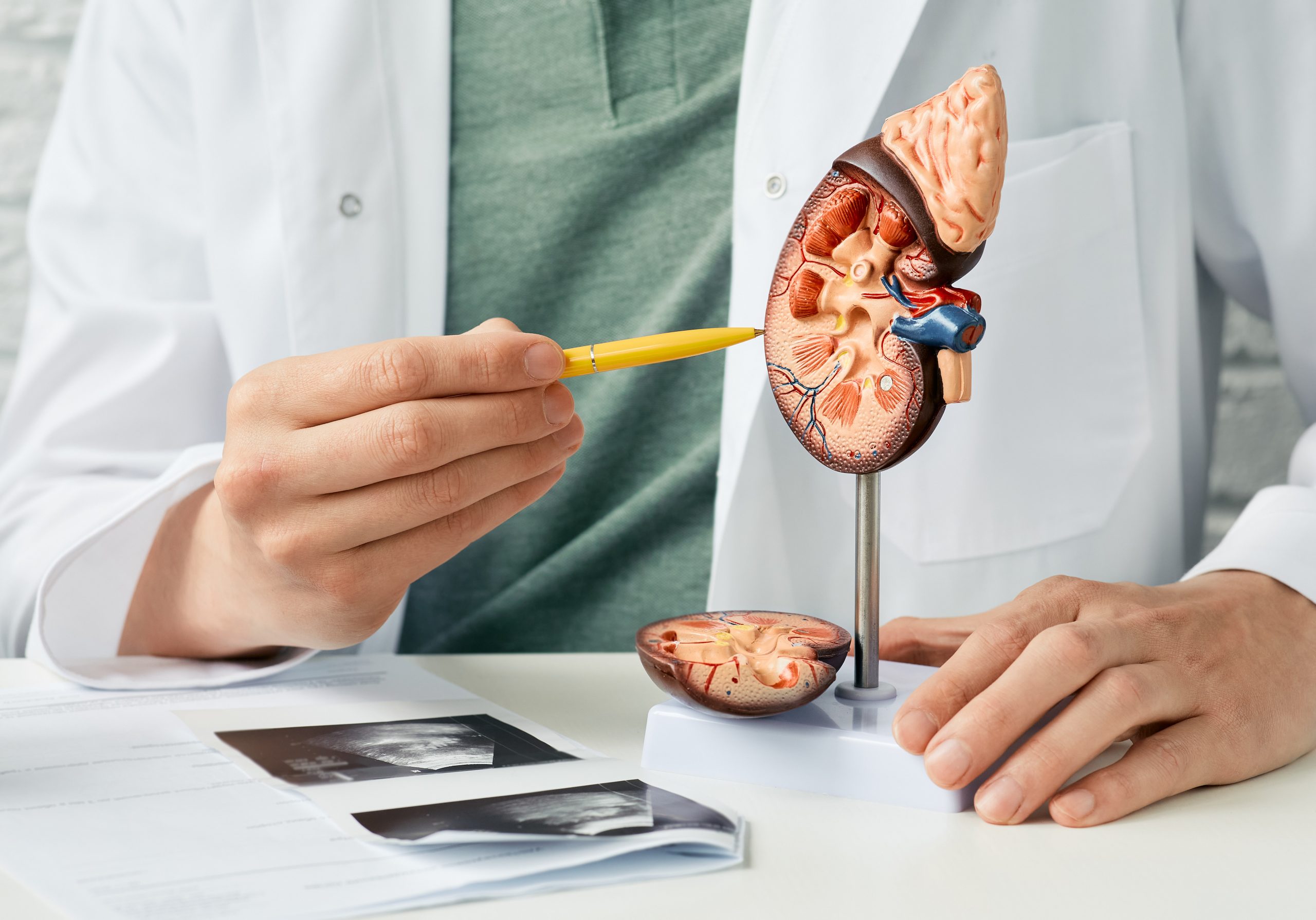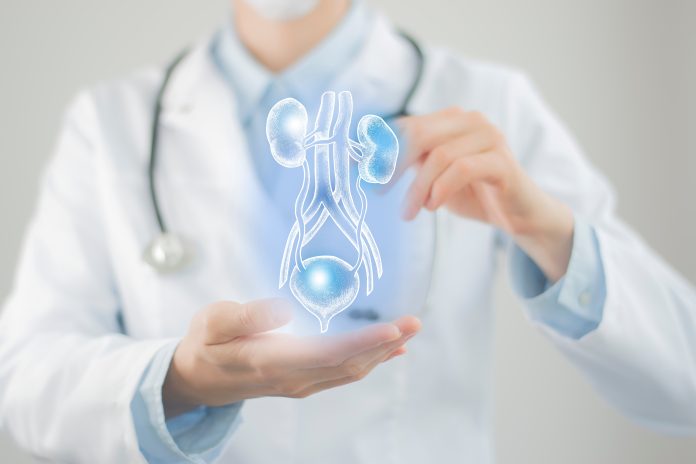Reading Time: 8 minutes
The urinary tract is one of the systems of the body we take for granted, not giving a second thought to the entire process. It just works in the background, ridding the body of impurities, keep it healthy. Any disruption in the system, however, can result in a multitude of health issues for an individual.
The urinary tract consists of the kidneys, ureters, bladder and urethra. Your kidneys filter your blood, creating urine, which travels through the ureters to the bladder, where it is stored. When the appropriate time comes, the muscles of your bladder contract and urine is excreted from your body through your urethra.
The body uses this urinary system in general and the urinary tract, in particular, to get rid of the bodily wastes and extra fluids. When all the parts of the urinary system are all working in perfect order, normal urination occurs and the body can expel wastes efficiently.
However, anything that affects any of these organs and causes a break in this chain can cause urinary diseases.
The term urinary diseases describe a wide variety of conditions related to filtering and also carrying urine out of the body.
Urinary diseases can affect men, women, and children of every age. Urinary diseases affect specific parts of the body. In females they involve the urinary tract, in men; it affects the reproductive organs as well.

Here are some common types of urinary diseases.
Incontinence
Sudden loss of control over the bladder, causing accidental urine leakage.
Types
Transient: A short episode of loss of bladder control, could be due to medication, age urinary infection or even pregnancy (the uterus exerts pressure on the bladder).
Stress: The most common type, this occurs when there is increased intra pelvic pressure, causing the urine to escape.
In normal situations, the increased pressure causes the pelvic muscles to contract, constricting the urethra and stopping the flow of urine. However, certain conditions like old age, pregnancy, hormonal changes cause the muscles and urethra to weaken, causing incontinence even on sneezing or coughing.
Overflow Incontinence: This happens when the bladder doesn’t empty completely, leaving residual urine in the bladder. It overfills rapidly, leading to incontinence. It’s usually seen as an effect of diseases like diabetes.
Urge incontinence: the need to urinate comes over suddenly and sometimes unexpectedly, and the person isn’t able to control the flow. It’s associated with a pathological change in the bladder or nerve damage.
Mixed: A combination of stress and urge incontinence, this is the most common type seen, especially in seniors and in hospitals.
UTI
One of the most common bladder problems, it affects one in three women across the world; it’s likely either you or someone you know has suffered from this condition at least once.
Urinary infection occurs when bacteria enter the bladder and fester there, and could then travel anywhere in the urinary tract.
Common symptoms are fever often accompanied with chills, increased urination, burning and irritation while passing urine. It can also cause hematuria and abdominal pain.
Contained to the bladder, it’s not a critical condition, but if it spreads to the kidneys, it can cause complications.
Nocturnal urination
A condition causing you to wake up several times a night to urinate, this is usually seen in people over 60 years of age. Another possible cause could be excessive liquid intake, especially before bedtime. Pregnancy is one of the most common reasons for nocturia.
Medical conditions such as diabetes, UTI, bladder inflammation can also aggravate nocturia.
Urinary retention
Urinary retention -when you can’t fully empty your bladder- can cause a persistent feeling like you need to urinate, pain in your lower abdomen, and frequent urination. It can be caused by various factors, such as -neurological factors, infections, bladder muscle dysfunction, obstruction, medications.
Increased urination
Urinating up to 7 times in 24 hours is common, and a normal.
Increased urination – more than 8 to 9 times a day and at least once at night, is a common symptom, affecting a large population.
Reasons include UTI; pregnancy induced hormonal dysfunction, diabetes, certain medicines like diuretics, foods that act like diuretics, such as alcohol and caffeine.
Urgency
Described as a sudden, overwhelming need to urinate, it is often accompanied by burning or pain in the urinary tract. Very often, the person will pass little to no urine, though the urge persists, making it a very uncomfortable condition.
UTI is the most common culprit, followed closely by pregnancy, increased liquid intake, alcohol, pregnancy.
Hematuria
Presence of blood in urine should cause a person to be alarmed, but surprisingly, a majority of patients either ignore it or wait for a second episode before visiting a physician. It’s a symptom that shouldn’t be ignored though, being one of the early and common symptoms of bladder or renal cancer.
BPH (benign prostate hyperplasia)
is an enlarged prostate- a gland that surrounds the male urethra. BPH is common in older men. It is not directly connected to prostate cancer. Although in some cases, BPH can increase the chances of prostate cancer.
The condition of BPH can cause uncomfortable urinary symptoms such as blocking the urine, heaviness in the bladder, urinary tract, or kidney problems. The symptoms of BPH arise due to the increased pressure on the urethra due to prostatic inflammation. Kidney stones, narrowing of the urethra, or scarring in the bladder due to previous surgery are also responsible for prostate enlargement.
Ureteral calculi
These are kidney stones that get stuck in one or both ureters. Ureters carry urine from kidneys to the bladder. Ureteral stones can block the flow of the urine and cause severe pain. The larger stones can be problematic as they result in blockage. These stones form due to the chemical imbalance in the urine.
Urinary hesitancy
As the name suggests, it is a condition where people have trouble either in starting or maintaining a urinary flow. Though most common in elderly men, it can affect women too.
BPH, infections, nerve damage, surgeries are some of the causes of hesitancy. It could also be psychological, where a person hesitates to pas s urine in font of others, causing problems in certain situations. This condition is called paruresis. Certain medication, such as anti-allergic, anti-depressants can also cause hesitancy.
Symptoms of urinary disorders vary from person to person and based on the cause of the disorders. Common urinary symptoms include:
- Abdominal cramping
- Abdominal, pelvic or back pain that can be severe
- Hematuria – blood in urine
- Cloudy urine
- Fever and chills
- Foul-smelling urine
- Frequent or urgent need to urinate
- General feeling of malaise
- Leaking of urine
- Pain during sexual intercourse
- Pain or burning with urination (dysuria)
- Unexplained weight loss
Observing your urine-
Keeping an eye on urine can often tell you any condition you might be predisposed to, or suffering from. The color, odor and urine temperature can change if affected by certain conditions, such as –
COLOUR– The standard urine colour, called urochrome, is a pale yellow, in normal conditions and when you’re well hydrated. Certain foods and medicines can change that.
- Clear – could indicate overhydration, or even liver disease.
- Cloudy urine – Medical conditions like urinary tract infection, some chronic diseases and kidney conditions can result in cloudy urine. In some cases, cloudy urine is another sign of being dehydrated. If you have cloudy urine and you’re pregnant, it could be a sign of a dangerous condition called preeclampsia. Cloudy urine with foam or bubbles (pneumaturia) can be a symptom of serious health conditions, including Crohn’s disease or diverticulitis.
- Pink/ red – Foods like beet, medicines such as laxatives or rifampicin (treatment for tuberculosis) cause urine to run red. Hematuria (blood in urine), observed in case of renal calculi, severe UTIs or cancers, can cause the reddish hue too.
- Orange – dehydration, chemotherapy drugs, jaundice, can all cause orange urine.
- Brown – Usually an indicator of dehydration. Medical conditions like porphyria or liver disease can also result in brown colored urine. Certain medications like metronidazole, certain foods like flava beans can give urine a brown color.
- Blue/ green – it’s rare and usually food related- some food dyes, some medicines, multi vitamins.
ODOUR – Urine usually has a very distinct, but mild odor, imparted by the amount and type of toxins excreted in it. Any change in the smell of urine can be indicative of a serious disease.
- A strong ammonia like odor means urine which is highly concentrated with waste.
- A sweet or fruity smell could mean diabetes, a bacterial infection or presence of amino acids. Portal hypertension, a result of liver disease, also gives a sweetish smell to urine.
URINE TEMPERATURE– Urine, on expulsion, usually feels warm. Excessively warm or hot urine could be a sign of an infection.
In women, warm urine could indicate vaginal infections, post pregnancy injury, STD.
In men, it could be a sign of prostatitis, injuries to urethra, STD, UTI.

Improve your Urological Health
It is important that we treat any disease that cause urinary complaints, as well as take steps to improve and maintain urological health.
Medication: Most diseases respond to medication such as anti-biotics, diuretics and NSAIDs. Do not hesitate to take medicines s prescribed.
Surgery: Some conditions, such as strictures or Calculi, need surgery as part of complete treatment.
Dietary changes – A healthy diet and fluid intake go a long way towards maintaining the urinary system –
- Staying hydrated – 1.5 to 2.5 liters of water a day is the recommended quantity for a healthy urinary flow.
- Staying within a healthy weight range (avoid obesity) – Obesity can increase the intra-abdominal pressure, causing stress and urge incontinence.
- Smoke-free lifestyle – Besides causing one to cough, which often results in urine leakage, Smoke can also irritate the bladder, increasing incontinence.
- Limit fluid intake in the nighttime hours – excessive fluid intake at night may trigger nocturnal enuresis.
- Limit the amount of salt and caffeine intake- caffeine being a natural diuretic, can result in excessive urination, as well as incontinence.
- Salt is known to cause water retention in the body. Expelling the extra fluid can be taxying for the kidneys. Excreting the extra salt is work for the kidneys too, and may result in more water being thrown out of the body, than the actual intake.
- Refrain from having carbonated drinks – Carbonated drinks are known to irritate the bladder, triggering urge incontinence.
- Eat foods rich in probiotics, especially lactobacillus, which is found in yogurt and kefir. Studies suggest that lactobacillus may be helpful for women with recurrent UTIs.

Lifestyle changes:
- Strengthen muscles of the pelvic area with Kegel exercises.
- If you use soap in the genital area, use an unscented product made for sensitive skin.
- Wear loose, cotton underwear. Consider not wearing underwear to bed to help your genital area stay cooler.
- Avoid tight-fitting jeans and leggings.
- Try to urinate every 3 to 4 hours and avoid holding your urine when you need to go.
- Take warm baths to soothe the sensation of urination.
- For women: Urinate before and after sexual activity to decrease risks of a UTI.
- Wipe yourself from front to back after going to the bathroom
- Avoid douching and vaginal sprays.
- Read the side effects list of your birth control before taking it
- Exercise and eat a whole-foods diet to maintain a healthy weight for your height, as well as your sugar levels.
- Monitor your blood glucose levels
- Avoid foods like desserts, breads, and beer that may spike your blood glucose
- Consistent diabetes management can prevent diabetic ketoacidosis.
Urinary complaints are common and usually treatable issues, if you pay a little attention to what your body is telling you.
Talk to your doctor about all the symptoms. Consult an urologist if required. If these urinary disorders are left untreated, it can have serious complications.








